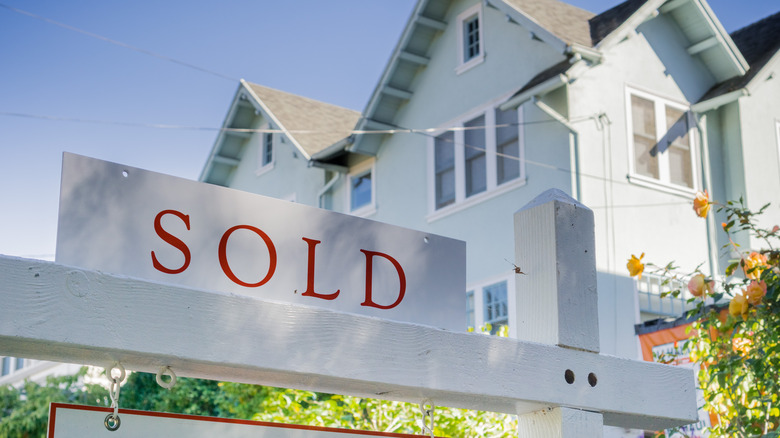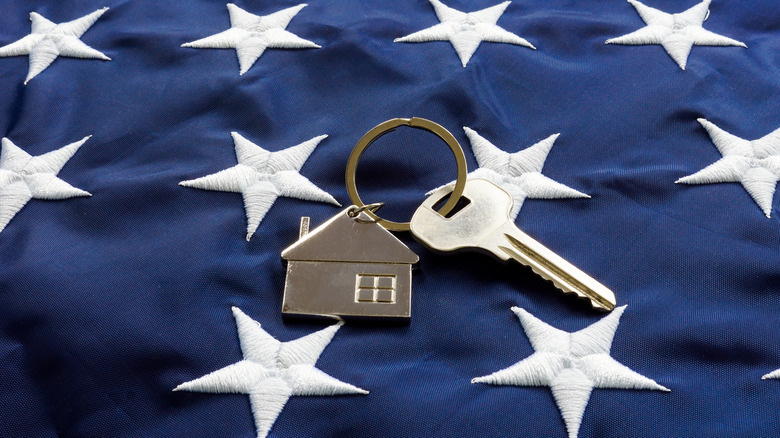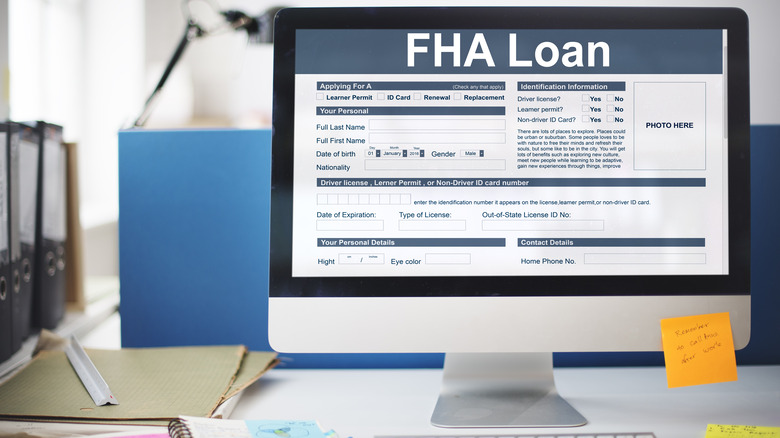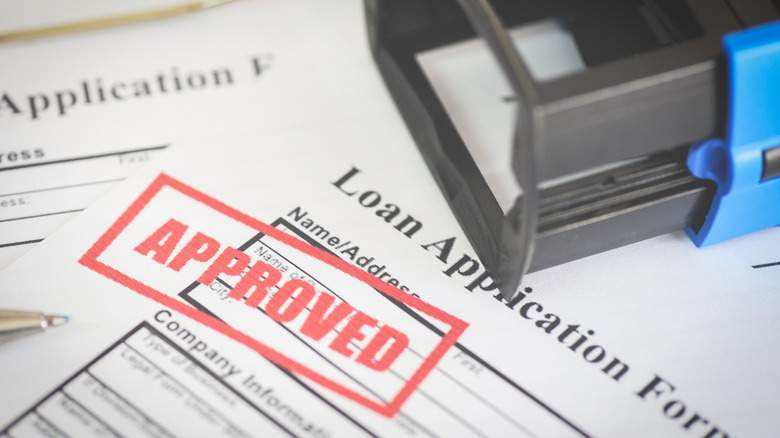How To Purchase A Home With No Down Payment
When you're first buying a home, after you close the deal on your loan, you have to make a down payment on your house. It's normally a percentage lenders use on the total amount you borrow to figure out what you have to put down, according to Rocket Mortgage. They're required so that folks don't back out on paying their loan if they've already invested a large portion of money into their home. Even though down payments can help you pay for a small part of your home, they can be hard to save up for.
There are a couple of ways to get out of putting a down payment on a house to own a house quicker, by not spending years saving for it. Certain loans will help you by offering a low down payment or making it so that you have a zero down payment. The only thing you would have to cover are closing costs at the end of escrow, but sometimes there are programs to help with those expenses as well. Here are a few loans you can look into if you're a first-time buyer or repeat home buyer who doesn't want to put in a down payment or wants to lower the amount they need to pay down.
VA loan
If you're an active-duty service member, a veteran, spouse of a deceased veteran, or a National Guard member, you could qualify for a VA loan, as stated by Rocket Mortgage. It's under the Department of Veteran Affairs, which will help prevent you from needing to put a down payment on your home. You'll only have to pay a VA funding fee one time that's 2.3% of your loan. They have a flexible range in which your credit score should meet depending on the lender. They're easy to apply for, but you'll need to meet at least one of their requirements.
If you're the spouse of a deceased military member who died in the line of duty, you'll be eligible. The amount of time you serve could qualify you for the loan: 90 consecutive days in wartime, 180 consecutive days in peacetime, or more than six years in the Reserves or National Guard. If you were discharged from your service because of a disability, that could also qualify you for the loan.
USDA loan
The USDA loans are handled by the United States Department of Agriculture. They offer a zero-down payment for folks who live in suburban or rural areas. They have lower fees than most loans because they want to help low-to-moderate income homebuyers, as noted by The Mortgage Reports. There isn't a limit to how much you want to purchase your home for, and your mortgage insurance fees are cheaper with this loan. The only catch is that your household income has to be lower than the median of your area. You can't make more than the median, or else you won't qualify.
One thing to consider if you want to apply for this loan is your primary residence has to be a single-family home in a rural or suburban area. You can't have a working farm be your source of residence. The ratio of your debt to income shouldn't be more than 45% in a single household.
FHA loan
While this loan won't guarantee you zero down payment, it will give you a low down payment. It's handled by the Federal Housing Administration, which provides loans with as little as 3.5% low down payments, via Investopedia. The FHA doesn't lend money, instead, they set a list of requirements for the loan, which are then offered by private mortgage lenders. They're given to low to moderate-income folks. It's similar to the USDA loans, where they're not provided by the FHA but offered by private lenders with requirements from the FHA.
You don't need a high credit score to qualify for the loan, you just need to make sure the house you purchase will be your primary residence. If your credit score is between 500 and 579, then you'll qualify for the loan if you make the 10% down payment. If your credit score is 580, then you'll only have to cover the 3.5% down payment.
Conventional loans
Conventional loans are provided by private lenders such as credit unions, banks, or other financial services that aren't the government. They have to follow certain guidelines that meet Fannie Mae or Freddie Mac which own many other mortgage companies. Through conventional loans, you'll be able to receive a higher loan amount, at a lower interest rate, per Experian. You can have a 3% interest rate, but some lenders will require you to put down 20%, then you'll possibly have to pay for private mortgage insurance or PMI. The PMI is a type of loan that protects your lender if you stop making payments on your loan. You can have the PMI removed once you reach 20%.
In order to get approved for a conventional loan, you need a credit score between 620 to 660. The interest rate will depend on your credit score, and you can choose to have it be fixed or adjustable. Most loans are in repayment for 30 years but can sometimes be approved for 15 or 20 years. There are also various loan types within the conventional loan to choose from, depending on your situation. For example, a jumbo loan falls under the conventional loan that allows you to borrow a larger amount than the standard loan. They require a larger down payment, higher credit score, and a low debt-to-income ratio.
HomeReady and Home Possible loans
The HomeReady loan from Fannie Mae is provided for homebuyers with a lower income that doesn't have a large amount saved up for a down payment, according to Lending Tree. This loan is similar to the conventional loan, where folks who are approved have to pay for PMI if they put down less than 20%. It's a great loan for first-time buyers, especially those who haven't bought a house in three years. In order to qualify, you need to be able to put down a payment of 3%, 620 or higher credit score, and you can't earn more than 80% of the median income in your area.
A Home Possible loan, which is from Freddie Mac, has similarities with the HomeReady loan, except this one can help homebuyers who don't have a credit score. The only downfall is their down payment increases to 5%. You're also required to take a homebuyer education course if you're a first-time buyer or don't have a credit score. If you do have a credit score, it should be 660 or higher to qualify for the loan.





